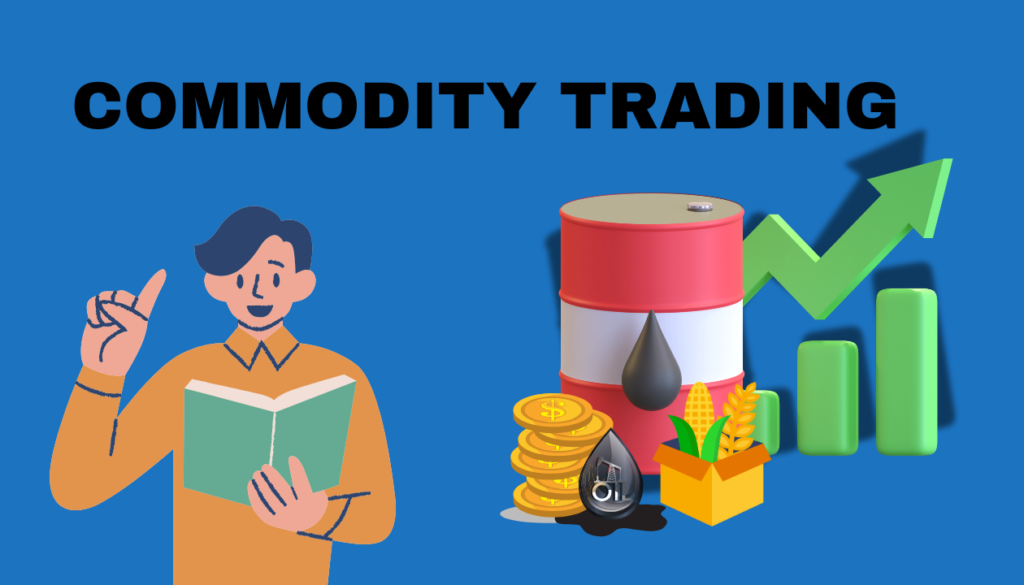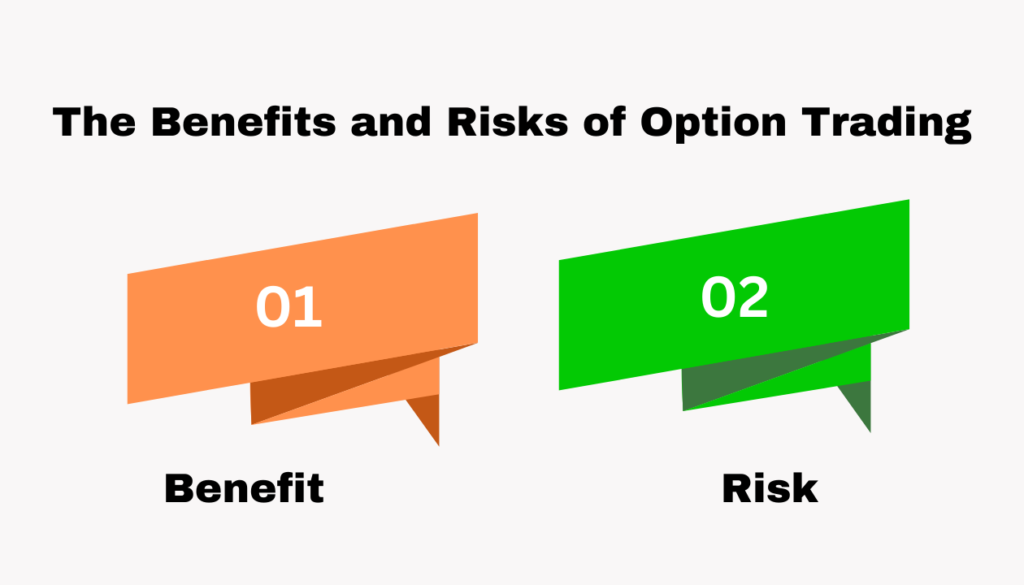In today’s fast-paced financial markets, investing wisely can significantly impact your wealth and financial security. Understanding different trading types is crucial to making informed decisions. This guide explores various trading types—stocks, commodities, options, and mutual funds—detailing their benefits, risks, and tips for choosing the best investment option for you.
1. Stock Trading

Benefits:
Liquidity: Stocks are highly liquid assets, allowing you to buy and sell quickly.
Growth Potential: Investing in the stock market can offer substantial returns, especially in growing companies.
Dividends: Many companies pay dividends, providing a steady income stream in addition to potential capital gains.
Risks:
Volatility: Stock prices can be highly volatile, influenced by market conditions, economic factors, and company performance.
Market Risk: General market downturns can lead to significant losses.
Company-Specific Risk: Poor performance or scandals within a company can adversely affect its stock price.
Tips for Stock Trading:
Diversify Your Portfolio: Spread your investments across various sectors to mitigate risks.
Stay Informed: Keep up with market news, company reports, and economic indicators.
Long-Term Perspective: Focus on long-term growth rather than short-term fluctuations.
2. Commodity Trading

Benefits:
Hedge Against Inflation: Commodities like gold and oil often retain value during inflationary periods.
Diversification: Commodities provide a way to diversify your investment portfolio beyond traditional assets.
Global Demand: Commodities are influenced by global supply and demand, offering opportunities for profit.
Risks:
Market Volatility: Prices can be highly volatile due to geopolitical events, natural disasters, and market speculation.
Leverage Risks: Commodity trading often involves leverage, which can amplify both gains and losses.
Storage and Transportation Costs: Physical commodities require storage and transportation, adding to investment costs.
Tips for Commodity Trading:
Understand Market Fundamentals: Study supply and demand factors, seasonal trends, and geopolitical influences.
Use Stop-Loss Orders: Protect your investments from significant losses by setting stop-loss orders.
Stay Updated: Regularly monitor market news and reports related to the commodities you trade.
3. Options Trading

Benefits:
Leverage: Options allow you to control a large position with a relatively small investment.
Flexibility: You can use options to hedge existing positions, speculate on market movements, or generate income.
Limited Risk: For buyers, the maximum loss is limited to the premium paid for the option.
Risks:
Complexity: Options trading requires a deep understanding of the market and strategies.
Time Decay: Options lose value as they approach their expiration date.
Potential for Significant Losses: While buying options limits your risk to the premium, writing (selling) options can lead to substantial losses.
Tips for Options Trading:
Educate Yourself: Invest time in learning about different options strategies and market dynamics.
Practice with Paper Trading: Use simulated trading platforms to practice without risking real money.
Risk Management: Always have a clear risk management strategy and use stop-loss orders to limit potential losses.
4. Mutual Fund Investment

Benefits:
Professional Management: Mutual funds are managed by professional fund managers, providing expert oversight.
Diversification: Mutual funds typically invest in a diversified portfolio of assets, reducing risk.
Accessibility: Mutual funds are accessible to individual investors with relatively low initial investment requirements.
Risks:
Management Fees: Mutual funds charge management fees, which can eat into your returns.
Market Risk: The value of mutual fund investments can fluctuate with market conditions.
Lack of Control: Investors have no control over individual asset selection within the fund.
Tips for Mutual Fund Trading:
Research Fund Performance: Look at the fund’s historical performance, management team, and investment strategy.
Consider Costs: Be aware of management fees and other expenses associated with the fund.
Align with Goals: Choose mutual funds that align with your investment goals and risk tolerance.
Conclusion
Choosing the right trading type depends on your financial goals, risk tolerance, and investment knowledge. Stocks offer high liquidity and growth potential, commodities provide diversification and a hedge against inflation, options offer flexibility and leverage, and mutual funds provide professional management and diversification.
By understanding the benefits and risks of each trading type and following practical tips, you can make informed investment decisions and work towards achieving your financial objectives. Always stay informed, diversify your investments, and manage risks effectively to maximiser your potential for profit in the dynamic world of trading.
Frequently Asked Questions
1. What are the benefits of stock trading?
Ans: Stock trading offers high liquidity, significant growth potential, and the possibility of earning dividends. Stocks can be bought and sold quickly, allowing investors to take advantage of market opportunities. Additionally, investing in growing companies can provide substantial returns over time.
2. What are the risks associated with commodity trading?
Ans: Commodity trading is subject to high volatility due to factors like geopolitical events, natural disasters, and market speculation. It often involves leverage, which can amplify both gains and losses. Additionally, trading physical commodities can incur storage and transportation costs.
3. How does options trading work, and what are its risks?
Ans: Options trading involves buying and selling contracts that give the right, but not the obligation, to buy or sell an asset at a predetermined price before a certain date. While options offer leverage and flexibility, they are complex and subject to time decay, which can erode their value as expiration approaches. Writing options can lead to significant losses if not managed properly.
4. What should I consider when choosing a mutual fund?
Ans: When choosing a mutual fund, consider its historical performance, the management team’s expertise, and the fund’s investment strategy. It’s also important to be aware of management fees and other expenses, as these can impact your returns. Ensure the fund aligns with your investment goals and risk tolerance.
5. How can I manage risks effectively across different trading types?
Ans: To manage risks effectively, diversify your investment portfolio across various asset classes and sectors. Stay informed about market trends and economic indicators. Use stop-loss orders to limit potential losses, especially in volatile markets. Regularly review and adjust your investment strategies based on performance data and market conditions.